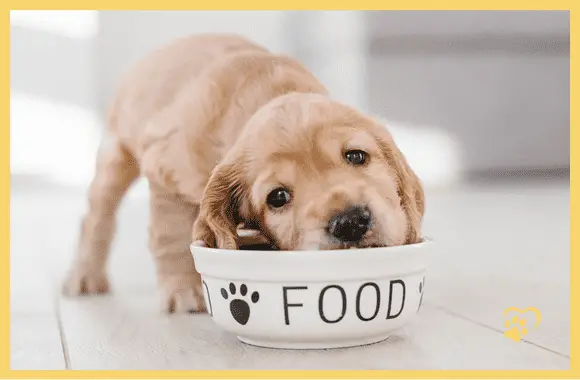Today we are addressing a topic that concerns every dog owner: everyday products that we use every day without realizing that they can be dangerous for our dogs. We all want the best for our four-legged friends - and that includes protecting them from hidden dangers in the home. We present eleven products that may surprise you. Products that are so commonplace that we often don't even think that they could harm our faithful companion.
And if your dog does eat something from this anti-list, quick action is important. Contact a veterinarian immediatelybecause your dog's health may depend on a quick response. Keep treats out of reach - this is the best way to avoid such emergencies.
Xylitol
Did you know that the sweetener xylitol, which is found in many sugar-free chewing gums and baked goods, can be dangerous for your dog? For us humans, it may be a low-calorie alternative to sugar, but our dog cannot metabolize this ingredient. Even a small amount can lead to a sharp drop in blood sugar levels, which can result in convulsions, unconsciousness and even death. Even more worrying is that xylitol can also lead to liver failure in dogs.
Always pay attention to what your dog eats. Even if it seems unlikely that your dog will get hold of these substances, accidents can quickly occur. A piece of chewing gum on the floor or a cookie lying around can be too much. As dog owners, we are responsible for ensuring that our home is a safe environment for our faithful four-legged friends.
Grapes and raisins
It's no secret that fruit is part of a balanced diet. But what is a healthy snack for us humans can be dangerous for our dogs. One example of this is grapes and raisins. Although the exact cause of their toxicity in dogs is not yet fully understood, it is clear that even small amounts can lead to severe kidney damage. Each dog reacts differently, and while one dog may not show any immediate symptoms after eating them, another may experience acute kidney failure. It is therefore important that these fruits are always kept out of the dog's reach.
Many dog owners are not aware of this danger and leave fruit lying around carelessly where curious dogs can reach it. Please be careful and keep grapes and raisins away from your four-legged friend.

Chocolate
Chocolate is a luxury food for us humans, but it contains a dangerous chemical for our dogs: Theobromine. This substance is difficult for dogs to digest and can cause various health problems, from restlessness and tremors to serious heart problems. Dark chocolate and bitter chocolate are particularly dangerous as they contain more theobromine. Depending on the size and breed of the dog, even small amounts can be problematic. Therefore, always keep chocolate out of sniffing range and act quickly if your dog has eaten chocolate. A visit to the vet can save lives.
Avocados
Avocados are considered a superfood for us humans, but for our dogs they are anything but. You may have wondered whether you can share the creamy fruit with your four-legged friend. The clear answer: no, you shouldn't. Avocados contain Persina substance that is toxic to dogs. Although the exact amount that causes problems can vary from dog to dog, it's better to play it safe and keep avocados out of your dog's bowl.
This also applies to the leaves, skin and pit of the avocado, all of which contain persin. Besides being toxic, the large, hard pit can be a choking hazard or get stuck in the digestive tract. There are so many safe and healthy alternatives you can treat your dog to, so skip the avocado and keep it to yourself.
Macadamia nuts
Macadamia nuts are popular with many people as a healthy snack, but they pose a serious risk to dogs. When it comes to your dog's health, it's important to know which foods to avoid. Macadamia nuts are at the top of the list. Why? They contain Toxinswhich can cause weakness in the hind legs, vomiting, overheating and even neurological symptoms in dogs.
The exact chemical causes are not yet fully understood, but the effects are undeniable. Just a few nuts can cause symptoms of poisoning in a dog. It is therefore important that you keep macadamia nuts in a safe place where your dog cannot reach them.
Onion and garlic
We take onions and garlic for granted in many dishes, but they pose a great danger to dogs. Both belong to the allium family and contain substances that can lead to the destruction of red blood cells in dogs. The result is anemia, which can lead to serious health problems. It doesn't matter whether onions and garlic are eaten raw, cooked or even in powder form - they are and remain dangerous.
Many dog owners are unaware of this danger because onions and garlic are found in so many foods. Nevertheless, be vigilant. Even small amounts can be problematic, especially if your dog eats them regularly. The symptoms of onion or garlic poisoning are not always immediately apparent, so watch your dog closely and seek veterinary advice immediately if you suspect it.

Alcoholic beverages
Alcoholic drinks may be a way for us humans to relax or celebrate, but they are extremely dangerous for our dogs. Even the smallest amounts of alcohol can cause serious damage to dogs' health. Dogs do not process alcohol in the same way as humans, Even small amounts can lead to symptoms of poisoningwhich can range from mild disorientation to severe coordination disorders, breathing problems and, in the worst case, death.
Dogs' metabolism cannot break down alcohol efficiently. This means that even a small sip of beer, wine or another alcoholic beverage can have serious consequences for your dog's health. Symptoms of alcohol poisoning in dogs include vomiting, tremors, excessive salivation, weakness and in severe cases even coma or death.
The following therefore applies: alcohol is taboo for dogs. So be careful when handling alcoholic drinks. Always keep them out of your dog's reach and make sure that no alcoholic drink is left unattended at parties.
Coffee and caffeinated products
For many of us, the day doesn't start without a cup of coffee. But what is an invigorating start to the day for us can be dangerous for our dog. Coffee and other caffeinated drinks such as tea, cola and energy drinks contain substances that are highly toxic to dogs. Even small amounts can lead to serious health problems. It is therefore very important that you as a dog owner ensure that your four-legged friend does not have access to these drinks or products containing caffeine.
Caffeine stimulates the nervous system, which can lead to tremors, restlessness, increased heart rate, hyperventilation and, in severe cases, seizures in dogs. The symptoms of caffeine intoxication can occur very quickly, often within a few hours of ingestion. It is therefore important that you act immediately and seek veterinary help if you suspect that your dog has ingested caffeine.
It may sound surprising, but even the dregs of a coffee cup or a discarded tea bag can contain enough caffeine to cause poisoning in a small dog. Therefore, always pay attention to where you put caffeinated drinks and products and make sure they are inaccessible to your dog.
Medication for humans
When it comes to our dogs' health, we want to do everything right. That's why we need to know that medicines for humans, such as ibuprofen and paracetamol, are not safe for our four-legged friends. These everyday painkillers can have serious and even fatal side effects in dogs. The metabolism of dogs is not designed to process such drugs, which can lead to severe poisoning.
Symptoms of poisoning can include vomiting, diarrhea, increased respiratory rate, impaired coordination and, in severe cases, liver and kidney damage and stomach ulcers. What is particularly worrying is that many dog owners are unaware of how dangerous these drugs can be and use them with good intentions to help their pet with pain or fever. However, this can lead to serious health problems.
Never give your dog medication intended for humans without first consulting a vet. Ihen in doubt, there are special medications for dogs that your vet can prescribe. These are safe and tailored to your dog's specific needs. Always keep medication out of your dog's reach and make sure it is stored safely to avoid accidents.
Household cleaner
Every household contains household cleaners such as descaling agents that make our everyday lives easier. But many dog owners don't know this: These everyday helpers can be dangerous and even deadly for our four-legged friends. Chemicals that dissolve grease, combat limescale or make surfaces shine often contain substances that are highly toxic to dogs. Once inhaled, licked or absorbed through the skin, they can cause serious damage to health.
The symptoms of household cleaner poisoning vary depending on the product and the amount ingested, but can lead to vomiting, diarrhea, respiratory distress, convulsions and even death in cases of severe poisoning. Particularly treacherous: many of these products leave residues on the floor or on surfaces where dogs can easily ingest them, either when playing or through their natural need to sniff and lick everything.
As a responsible dog owner, make sure that cleaning and descaling products are stored safely and out of reach. Use these products sparingly and ventilate thoroughly after cleaning to minimize airborne residues. There are now many dog-friendly cleaning products without toxic chemicals that are a safe alternative.
Rat poison and insecticides
Rat poison and insecticides can be found in many households and gardens to keep pests away. But while they are effective against uninvited guests, they pose a serious threat to our dogs. These products contain chemicals specifically designed to quickly kill rodents and insects, but are also deadly to our four-legged friends. Even small amounts of these poisons can cause severe poisoning in dogs, which can be fatal without immediate treatment.
Symptoms of poisoning by rat poison or insecticides can include bleeding, weakness, tremors, cramps and breathing difficulties. Depending on the type of poison, these symptoms may appear immediately or only after several days. If you suspect that your dog has been poisoned, it is important to waste no time and seek veterinary advice immediately. Early diagnosis and treatment can be life-saving.
Also good reading:
- The most common dog diseases: Recognize, understand and prevent

- Do I have to keep my dog busy eight hours a day?

- How do I develop my dog's intelligence?
For a safe home
With a little care and caution, you can make your dog's world a little safer every day. Stay curious, stay informed and make sure that your four-legged friends are spared the dangers posed by some household products.
Your dog will thank you!
